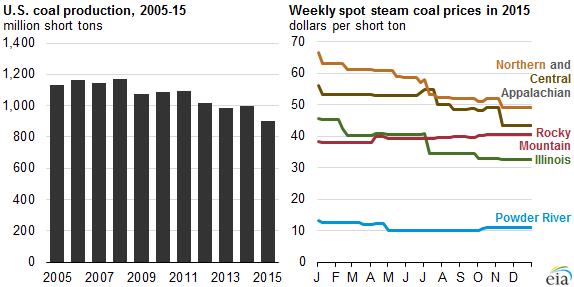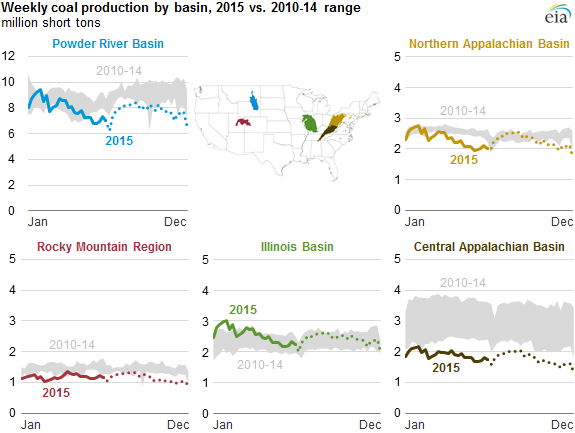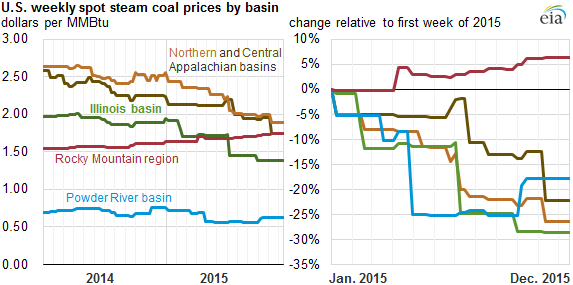|
44 PUBLIC SAFETY. RDINANCE NO. 1906. An Ordinance Regulating the Storage of Kerosene, Coal Oil, and All Refined Products of Crude Petroleum, Within the Limits of the City of Oakland, and Imposing a Penalty for the Violation Thereof. Be it Ordained by the Council of the City of Oakland, as follows: Section 1. It shall be unlawful for any person or persons, firm or corporation to keep, store or permit to be kept or stored, in or upon any premises owned or controlled by such person, firm or corporation, within the limits of the City of Oakland, any kero- sene, coal oil, or any of the refined products of crude petroleum, in larger quantities than 1500 gallons, except in that portion of said city bounded and described as follows, to-wit: Beginning at the point of intersection of the center line of Peralta street with the center line of Twentieth street, and running thence northerly along the center line of Peralta street to the cen- ter line of Twenty-sixth street; thence westerly along the center line of Twenty-sixth street and its westerly projection to the line between Sections 21 and 22, according to Map Number 11 of the salt marsh and tide land, survey; thence southerly along the said line between Sections 21 and 22 of the above-named survey to the center line of Twentieth street, produced westerly; thence easterly along the said westerly projection of and the center line of Twentieth street to the place of beginning. Provided, however, that the provisions of this ordinance shall not apply to crude petroleum. Sec. 2. All buildings or structures to be used for the storage of kerosene, coal oil, or any of the refined products of crude petro- leum, within the limits of the City of Oakland, shall be constructed of brick or stone, not to exceed one story in height, and the walls of said buildings shall not be less than sixteen (16) inches in thick- ness, and must in all respects be fireproof and devoted exclusively to the storage of kerosene, coal oil, or any of the refined products of crude petroleum, and all kerosene, coal oil, and any of the re- fined products of crude petroleum, shall be kept at all times in metal cans or iron tanks. Sec. 3. An ordinance entitled "An Ordinance Regulating the Storage of the Refined Products of Petroleum," approved May 19, 1880, and an ordinance entitled "An Ordinance Regulating the Storage of the Refined Products of Petroleum in the City of Oak- land, Cal.," approved June 4, 1891, and an ordinance entitled, "An Ordinance Regulating the Storage of Petroleum, Kerosene, Coal Oil, or the Refined Products Thereof, Within the Limits of the City of Oakland," approved June 10, 1893, and all ordinances and parts of ordinances in conflict with this ordinance are hereby re- pealed. Sec. 4. (As amended July 16, 1912, by Ordinance Xo. 241 X. S.)
1 Comment
By David DeBolt
[email protected] Posted: 02/16/2016 05:32:14 PM PST OAKLAND -- A new poll released Tuesday by the Sierra Club and supported by local clergy show most Oakland residents surveyed oppose the idea of coal transports through the city. "This poll clearly demonstrates what we've learned from our conversations on the ground with Oaklanders," Brittany King of the San Francisco Bay Chapter of the Sierra Club said in a statement. "Oakland residents do not want dirty coal exports in their city." The Oakland City Council at its meeting Tuesday had been scheduled to get an update on coal and consider a $208,000 contract with an environmental group to examine the health and safety effects of transporting the ore by rail through Oakland and loading it onto ships for export overseas. Despite a packed house, the council announced that no action would be taken and another meeting would be scheduled in April. Prominent Oakland developer Phil Tagami is building a large shipping terminal near the Port of Oakland to handle non-containerized commodities. Activists say the new terminal could bring between 5 million to 10 million tons of coal to Oakland, and cause health problems for residents here. Of the 400 registered voters recently surveyed, 56 percent opposed coal transport to Oakland, 23 percent supported it and 21 percent had no opinion, according to the poll. Opposition grew when pollsters read pro and con statements on the issue: 76 percent were against the idea, including 55 percent "strongly opposed," according to the poll. The pro statement said builders would use environmentally friendly practices and the plan would add jobs and bring in millions of dollars to Oakland. The con statement said coal dust from trains could increase risk of asthma, bronchitis and cancer, and moves away from the city's commitment to counter climate change. The Sierra Club poll was conducted by Fairbank, Maslin, Maullin, Metz and Associates, a firm often used by school districts, cities, and labor, energy, environmental and other politically active groups. All of the people surveyed were registered to vote in Oakland, the firm said in its poll. Those polled also said they are more likely to vote for an Oakland city council candidate who is opposed to coal. Mayor Libby Schaaf and some council members have publicly denounced any plans to ship coal here, as have environmentalists who say coal dust would harm residents, especially those who live adjacent to the port in West Oakland. Residents there are already more likely to suffer from respiratory illnesses, according to Alameda County Public Health. "No community, rich or poor, should endure the effects of coal. But the environmental inequity of the coal terminal proposal cannot be disregarded," said Rev. Kenneth Chambers of West Side Missionary Baptist Church in Oakland, one of several clergy opposed to the project. "West Oakland already bears a disproportionate burden of pollution, of toxic contamination from diesel exhaust spewing from (roads and freeways) crisscrossing through the community." Late Tuesday Mayor Libby Schaaf released a statement reiterating her opposition to coal transports, and asked the council to postpone awarding the contract to Environmental Science Associates so that the city can "further evaluate other, potentially more effective options." The contract is the council's latest effort to determine if it can legally prohibit the coal shipments. A 2013 agreement between the city and Tagami to develop a large shipping terminal at the former Oakland Army Base did not include restrictions on shipping coal. David Smith, an attorney for Tagami, declined to comment on the poll. Since approval of the Bulk Commodities Terminal near the Port of Oakland, four coal-producing Utah counties have set aside $53 million to invest into the new $250 million center. David DeBolt covers Oakland. Contact him at 510-208-6453. Follow him atTwitter.com/daviddebolt. Since reaching a high point in 2008, coal production in the United States has continued to decline. U.S. coal production in 2015 is expected to be about 900 million short tons (MMst), 10% lower than in 2014 and the lowest level since 1986. Regionally, production from the Appalachian Basin has fallen the most. Low natural gas prices, lower international coal demand, and environmental regulations have contributed to declining U.S. coal production. The United States has five major basins or regions that produce coal. The largest decline in coal production was in the Central Appalachian Basin, largely because of its difficult mining geology and high operating costs. Coal production in the Central Appalachian Basin in 2015 was 40% below its annual average level over 2010-14. In three other main areas, the Northern Appalachian Basin, Rocky Mountain region, and Powder River Basin, production in 2015 was 10% to 20% below their corresponding regional annual average levels over 2010-14. By contrast, coal production from the Illinois Basin in 2015 was 8% higher than production levels over 2010-14. In the United States, almost all coal is used to generate electricity. Recently, coal's share of electricity generation has fallen as its market share of natural gas and renewables increased. The average daily natural gas spot price at the Henry Hub, a key natural gas benchmark, fell from $4.38 per million British thermal units (MMBtu) in 2014 to $2.61/MMBtu in 2015, resulting in greater natural gas-fired electricity generation. In April 2015, natural gas-fired electricity generation surpassed that of coal-fired generation on a monthly basis for the first time in history, and it did so again in each of the months from July through at least October, the latest monthly data available. The most recent Short-Term Energy Outlook estimates that 2015 power sector coal consumption will be about 764 MMst, the lowest level since 1988. U.S. coal exports also declined in 2015, especially to major coal export destinations such as Europe and China. Although 15.7 MMst of coal was exported to the United Kingdom and Italy in 2014, only about half that volume is expected in 2015, when complete data are available. China, the world's largest coal consumer, is traditionally a large market for international coal trade, and China imported 8.3 MMst from the United States in 2013, about 7% of total U.S. coal exports that year. In 2014, U.S. coal exports to China decreased to 1.8 MMst, and the 2015 total is expected to be less than 0.5 MMst. Based on U.S. Census Bureau data through September 2015 and estimates for the remainder of the year, EIA expects the United States to export a total of 77 MMst of coal in 2015, a 21% decline from the previous year. With the exception of the Rocky Mountain region, steam coal prices in major basins experienced double-digit percentage declines in 2015. Central Appalachian coal continued to be economically challenged compared with natural gas for electricity generation, and average steam coal spot prices dropped by another 22% in 2015, following a decline of 13% the year before. Coal prices in the Powder River, Illinois, and North Appalachian basins, which had remained largely unchanged during 2014, decreased 18%, 26%, and 29%, respectively, in 2015.
Principal contributor: Brian Park http://www.eia.gov/todayinenergy/detail.cfm?id=24472 California Insurance Commissioner Dave Jones calls for insurance industry divestment from coal2/9/2016 News: 2016 Press Release
For Release: January 25, 2016 Media Calls Only: 916-492-3566 California Insurance Commissioner Dave Jones calls for insurance industry divestment from coal Commissioner also announces new requirement for disclosure of carbon-based investments held by insurance companies HUNTINGTON BEACH, Calif. — Today, California Insurance Commissioner Dave Jones asked all insurance companies doing business in California to voluntarily divest from their investments in thermal coal. Complying with this request would include making no new investments, not renewing any existing investments and selling or withdrawing from existing investments in thermal coal. Commissioner Jones also announced that in April of this year he will initiate a data call that requires insurance companies to disclose annually their carbon-based investments including those in oil, gas and coal. These required financial disclosures will be made public and will be used by the Department of Insurance to assess the degree of financial risk posed to insurance companies by their investments in the carbon-based economy. Commissioner Jones is the first insurance regulator in the nation to call on insurance companies to divest from thermal coal. Jones is also the first to announce that he will require insurance companies to provide detailed and public disclosures of their investments in the carbon economy. Commissioner Jones regulates the largest insurance market in the United States and the sixth largest in the world, where insurance companies collect $259 billion in premiums from Californians annually. Commissioner Jones issued the following statement: "Today I ask insurance companies doing business in California to voluntarily divest from investments they hold in thermal coal. "I am also announcing that insurance companies doing business in California will be asked to provide to the Department of Insurance detailed and specific financial disclosures of their investments in the carbon economy including coal, oil and gas. We will make this new information public so that investors, policyholders, regulators and the general public can know the extent to which insurance companies are invested in the carbon economy. "The Department of Insurance will use this new information to evaluate the potential financial risk to insurance companies posed by investments in the carbon economy. "My decision to ask insurance companies to divest from thermal coal and to require insurance companies to disclose investments in the carbon economy arises from my statutory responsibility to make sure that insurance companies address potential financial risks in the reserves they hold to pay future claims. "As utilities decrease their use of coal and other carbon fuel sources, as states like California limit the ability of the private sector to use coal and other carbon fuels for power generation and require their pension funds to divest from coal, as states like California and the United States impose more stringent air quality requirements which limit the ability to burn coal and other carbon fuels, and as nations across the world begin to implement the commitments they made to reduce their use of carbon at the recent United Nations COP21 Climate Summit in Paris, investments in coal and the carbon economy run the risk of becoming a stranded asset of diminishing value. "The movement away from coal and the rest of the carbon economy poses a potential financial risk to insurance companies investing in coal and the carbon economy. The potential risk of continuing such investments is that they lose value over time or that they lose value quickly. In either case, such investments pose a potential financial risk to those who invest in them. "Last year global temperatures were higher than ever before. Climate scientists tell us that without dramatic reductions in the use of carbon, we will continue to see increases in global temperatures and major changes in climate with negative consequences. "At some point nations and states may dramatically restrict the use of carbon. At that point, or earlier in anticipation of those restrictions, investments in coal mines, in oil and gas wells, in companies that extract coal, oil or natural gas, in utilities that rely on coal, oil or gas, among others, could drop dramatically in value. Before that happens it is important for insurance companies and insurance regulators to understand the scope of these investments by insurance companies and to take steps to mitigate financial risks. Divestment from thermal coal in particular will help protect insurance companies from holding an investment dropping in value, and which is likely to suffer substantial additional decline in value during a transition to a reduced carbon economy. "California is decarbonizing its economy and transitioning to clean, pollution free energy resources. Utilities have been required by law to dramatically reduce their reliance on carbon. California's cap and trade program also results in raising the cost of carbon and reducing its use. Two of the world's largest pension funds—CalSTRS and CalPERS—have been required by the state legislature to divest their thermal coal investments by July 2017. "A number of insurance companies have also recognized the risks of continued investment in thermal coal. Allianz, which is not only an international insurance company but one of the world's largest financial asset managers, announced that it would decrease investments in companies using coal and boost funding in those focused on wind power. Similarly, Axa Insurance Company announced last year that it will remove from its portfolio, and refrain from future investment in, companies that derive more than half of their income from coal mining. This policy will also apply to electrical utilities that derive more than half of their energy from thermal coal plants. "Today, I am asking all insurance companies to phase-out their thermal coal investments by refraining from making new investments, refraining from renewing existing investments, and by eliminating any existing thermal coal holdings. I realize that it will be challenging for some insurers to immediately eliminate all of their existing thermal coal investments, but I strongly encourage them to move in this direction. "To determine the current level of financial exposure in the Insurance sector to risks from carbon economy investment, I am launching an effort to collect detailed financial data about the level and types of carbon-based investments held by all insurance companies that write $100 million or more in premium nationally. Knowing how much money insurers have invested in oil, gas, coal, and related companies, should inform us about any financial vulnerability the insurance industry has to a decarbonized economy, and help insurers and regulators determine how best to address this risk, including additional divestment. "I am inviting insurance companies to meet with my Department to provide technical input on how we can best collect this information. "I do not want to sit by and then discover in the near future that insurance companies' books are filled with stranded assets that have lost their value because of a shift away from the carbon-based economy, jeopardizing their financial stability and ability to meet their obligations, including paying claims to policyholders. Insurance companies divesting thermal coal assets will help reduce coal combustion, the single largest contributor to global climate change in the United States." # # # Media notes:
The California Department of Insurance, established in 1868, is the largest consumer protection agency in California. Insurers collect $259 billion in premiums annually in California. In 2014 the California Department of Insurance received more than 175,000 calls from consumers and helped recover over $63 million in claims and premiums. Please visit the Department of Insurance web site at www.insurance.ca.gov. Non-media inquiries should be directed to the Consumer Hotline at 800.927.HELP or 213.897.8921. Telecommunications Devices for the Deaf (TDD), please dial 800.482.4833. By Rev. Kenneth Chambers, Rev. Ben Daniel and Paul Rockwell
© 2016 Bay Area News Group Posted: 02/09/2016 09:00:00 AM PSTThe Oakland City Council recently established a Department of Race and Equity, hoping to address social and racial disparities in Oakland. How ironic that the Oakland Global Trade and Logistic Center is seeking to turn West Oakland into the largest coal export facility on the West Coast. West Oakland is a low-income, largely African-American community, and the issue of environmental justice can hardly be overlooked. Black lungs matter. In 1987 the United Church of Christ Commission for Racial Justice published an explosive report titled "Toxic Wastes and Race in the United States." People of color, especially African-Americans, the report demonstrated, are the most likely victims of industrial pollution. Based on the findings, the Rev. Ben Chavis helped launch the movement against environmental racism. West Oakland already bears a disproportionate burden of pollution, of toxic contamination from diesel exhaust spewing from thruways crisscrossing through the community. Some years ago, the Pacific Institute and the 7th Street Neighborhood Improvement Initiative released a report that showed residents of West Oakland face five times more toxic pollution per person than residents of the city of Oakland. Life expectancy of West Oakland residents is far below the life expectancy of residents in the Oakland hills, and West Oakland tenants are twice as likely to visit emergency rooms for asthma as the rest of Alameda County. Recently, members of the Alameda Interfaith Climate Action Network joined No-On-Coal to canvass West Oakland. One woman stood in a doorway and said, "They wouldn't put all this coal out there in Lafayette. We get the coal; they get the trees." To be sure, no community, rich or poor, should endure the effects of coal. But the environmental inequity of the coal terminal project cannot be disregarded. Albert Kueffner, who volunteers at the Western Service Workers Association at Peralta and 12th streets, was one of the local canvassers. He said, "Most people we talked had asthma or had a child or a family member or a close friend with asthma. A black mother had two young sons on breathing machines. Because of polluted air the kids couldn't go outside and play." Coal is the largest source of carbon emissions in the world, accounting for more than 44 percent of global carbon dioxide emissions. There is no such thing as clean coal. It makes no sense for Gov. Jerry Brown and Oakland Mayor Libby Schaff to return from Paris only to watch the City Council welcome coal to Oakland. Majora Carter, co-founder of Green For All, once said, "If power plants, waste handling, chemical plants and transport systems were located in wealthy areas as quickly and easily as in poor areas, we would have had a clean, green economy decades ago." Recently, the Rev. Kwasi Thornell of St. Augustine Episcopal Church in West Oakland reflected on the coal terminal project: "Urban poor and minority communities have been the dumping ground for environmental waste products for a long time, and as a result, there's a long history of respiratory diseases in those communities." It's not complicated. We, too, say no to coal in West Oakland because black lungs matter. The Rev. Kenneth Chambers is pastor of West Side Missionary Baptist Church in Oakland. The Rev. Ben Daniel is pastor of Montclair Presbyterian Church in Oakland. Paul Rockwell is a member of the Alameda Interfaith Climate Action Network. http://www.contracostatimes.com/opinion/ci_29495745/guest-commentary-saying-no-coal-oakland-is-right |
Gene HazzardDon't Be Envious of Evil Men Archives
June 2024
Categories
All
|
||||||
- Home
- Sanjiv Handa
- Gene's Blog
- Rotunda RFP
- Gene Hazzard -Keeping eyes open
- Chronology of Tagami's scheme of Private-Public Partnership with City Projects
- Another Tagami scheme - Rotunda Building deal
- Oakland Army Base
- Billboards in Oakland
- Port of Oakland
- Oakland Raiders?
-
Who is running Oakland?
- Jerry Brown
- Don Perata
- Judge Robert B. Freedman
- Jacques Barzaghi
- Gawfco Enterprises
- Deception
- Doug Bloch
-
Phil Tagami
>
- SF Business Times November 20, 2005
- Rotunda wrestling
- A conversation with Oakland developer Phil Tagami
- Audit of $91 million Fox Theater project
- Tagami Conflict
- CCIG Response to Oakland Works
- Oakland developer Phil Tagami named to state medical board
- ‘Shotgun Phil’ hits another bullseye — with governor’s help
- CleanOakland Store
- CenterPoint Properties




 RSS Feed
RSS Feed
